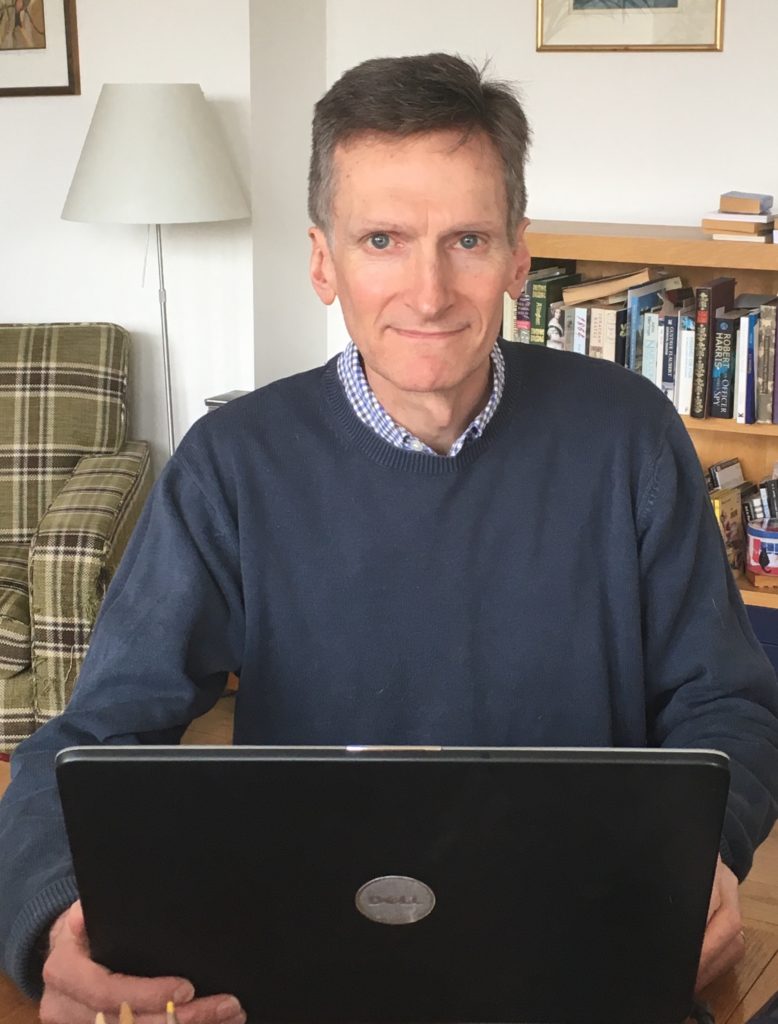1 December 2022
Dangerous Songs
Singing and silence.
By Neil Tidmarsh

Promoting his recently published autobiography Surrender; 40 Songs, One Story, U2’s Bono revealed that he and his family have been subjected to death threats from the IRA, far-right US racists and Dublin gangsters. His non-partisan promotion of peace and his refusal to take sides in Northern Ireland’s conflicts earned him the enmity of Gerry Adams (apparently, Bono’s opinions adversely effected the flow of funding to republican militant groups from sympathisers in the USA). Every time U2 perform their song Sunday Bloody Sunday, the singer announces that “this is not a rebel song”. And in the USA, a U2 concert in Arizona was preceded by a sinister attempt to stop them performing the song Pride, about Martin Luther King; “if Bono sings the verse about the assassination of King” the band was apparently told, “he will not make it to the end of the song.” Bono sang the song all the way through anyway.
Who would have guessed that singing songs could be so dangerous, so controversial? Well, anybody who’s read the newspapers this last week or so, it would seem.
In Hong Kong in 2019, the massive crowds of pro-democracy demonstrators made themselves heard, literally, by singing such songs as Can You Hear the People Sing? (from the musical Les Miserables) and the Christian hymn Sing Hallelujah to the Lord. They soon had their very own anthem, though; Glory to Hong Kong, written and composed by a protestor or protestors who remain anonymous under the pseudonym ‘Thomas’. “We pledge no more tears on our land / In wrath, doubts dispelled we make our stand / Arise! Ye who would not be slaves again; / For Hong Kong, may freedom reign!” So runs the first of its four verses. From 2019 to 2020, Hong Kong’s official anthem The March of the Volunteers was routinely booed when played in public and Glory to Hong Kong sung by the crowds instead.
Following the brutal crack-down and the new National Security laws, however, the song isn’t heard much on the streets of Hong Kong these days. It hasn’t been specifically banned, but it’s understood that anyone singing it in public will attract police attention and fall foul of the law in one way or another (obstruction, not wearing a mask, busking without a licence, etc). Two months ago, someone among the crowd of mourners for Queen Elizabeth II outside the British Consulate in Hong Kong played God Save the King on his harmonica, followed closely by Glory to Hong Kong – and was promptly arrested and charged under an old sedition law.
Nevertheless, it does keep cropping up in some curious places. South Korea, for instance. Last week, the final of Asia Rugby’s rugby sevens cup saw Hong Kong play against South Korea in Incheon. The match was preceded, of course, by the playing of both side’s anthems. But the Hong Kong government angrily accused Asia Rugby of playing the wrong song and demanded an apology and an explanation for this “unacceptable incident”. The Hong Kong authorities said that The March of the Volunteers should have been played, but didn’t actually specify what was in fact played instead. The Hong Kong team won the game (score 19-12) but celebrations have been absent from Hong Kong Rugby Union’s official social media accounts and livestream videos of the game have been absent from Asia Rugby’s official platforms. Nevertheless, any attempts by the authorities to hide what in fact was played appear to have been in vain; it was Glory to Hong Kong, of course, as everyone has guessed. It doesn’t look like the affair will stop with that apology, however; this week it was announced rather ominously that Hong Kong police have started an investigation into the incident.
In mainland China, protesters in the anti-lockdown demonstrations breaking out in cities all across the country this week have been heard singing La Marseillaise: “Arise, children of the fatherland / The day of glory has arrived / Against us tyranny’s bloody standard is raised…” No doubt it won’t be long before they have their own anthem to match Glory to Hong Kong. Perhaps one of them is composing it right now.
Other stories in the news in recent weeks show that refusing to sing an official song is just as dangerous as singing an unofficial song.
The silence of Iran’s football team as their national anthem was played in Qatar was deafening, echoing around the world like a thunderclap, and will continue to be heard long after the last cheers for the tournament’s eventual winners have faded away. The players had earned the animosity of the country’s protesting population by attending a reception hosted by President Raisi, but their subsequent refusal to sing lyrics glorifying the 1979 revolution and the Islamic Republic and its regime must have taken immense courage. Official Iranian media predictably blamed other parties (“England, Israel, Saudi Arabia and traitors inside and outside the country”) for the defeat and for the protest, complaining that “the Zionist entity and the al-Saud” had “created a gap between the Iranian people and the national football team”. But this is unlikely to prove any kind of defence for those soccer players when they return home to face the authorities. It doesn’t bear to think about what sort of reception the regime is preparing for them.
In Ukraine (where, incidentally, Glory to Hong Kong has become a huge hit) stories are emerging from liberated Kherson of civilians being forced by Putin’s occupying soldiers to learn and sing the Russian national anthem or risk arrest, torture and even death. Dissidents and other inmates of Correctional Facility number 2, Russia’s toughest penal colony to which Navalny has just been transferred, begin every day at 6am with the Russian national anthem – but this barely qualifies as psychological torture when compared with other aspects of its brutal regime.
Bono was on his knees with his eyes closed by the time he sang the last verse of Pride at that concert in Arizona. But the threatened bullet never came and he lived to sing another day. May the protesters in Hong Kong, China, Iran, Russia and Russian-occupied Ukraine, singing or refusing to sing, in defiance of their oppressors, meet with equally good fortune.
“Break now the dawn, liberate our Hong Kong / In common breath: Revolution of our times! / May people reign, proud and free, now and evermore / Glory be to thee, Hong Kong!”


